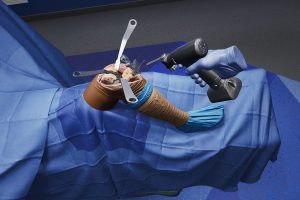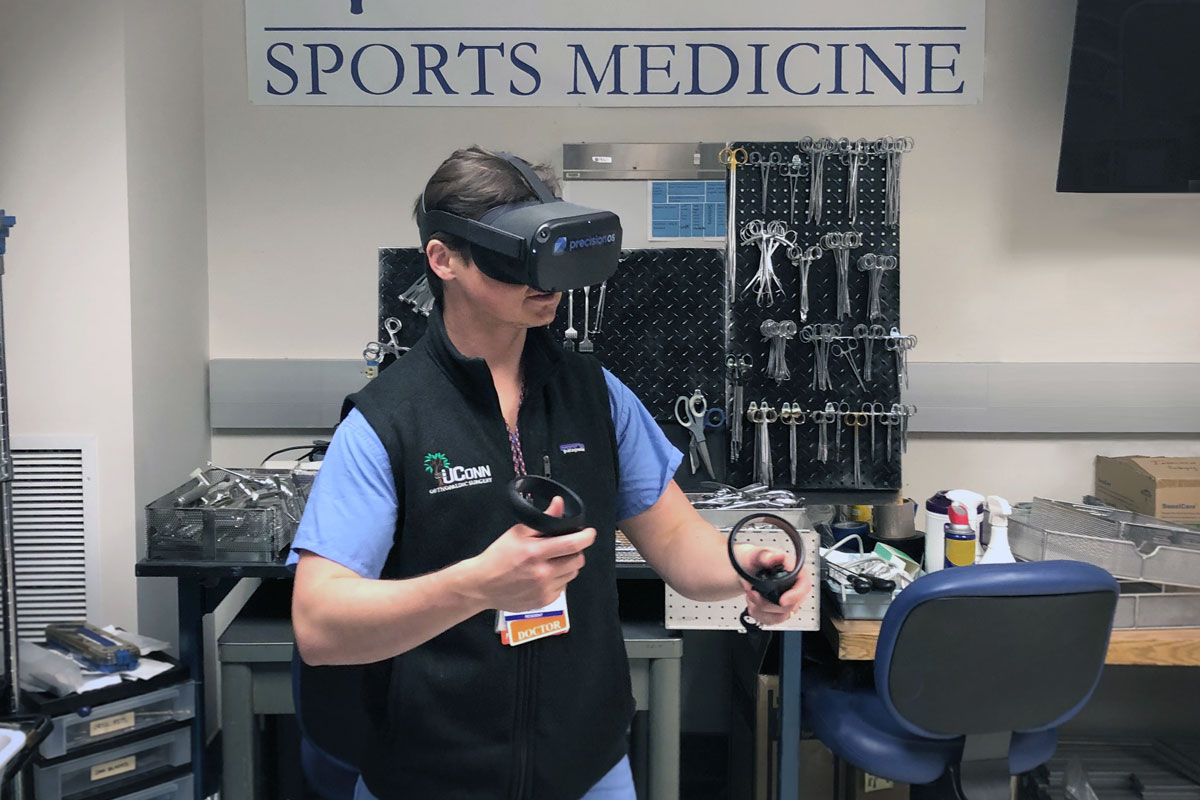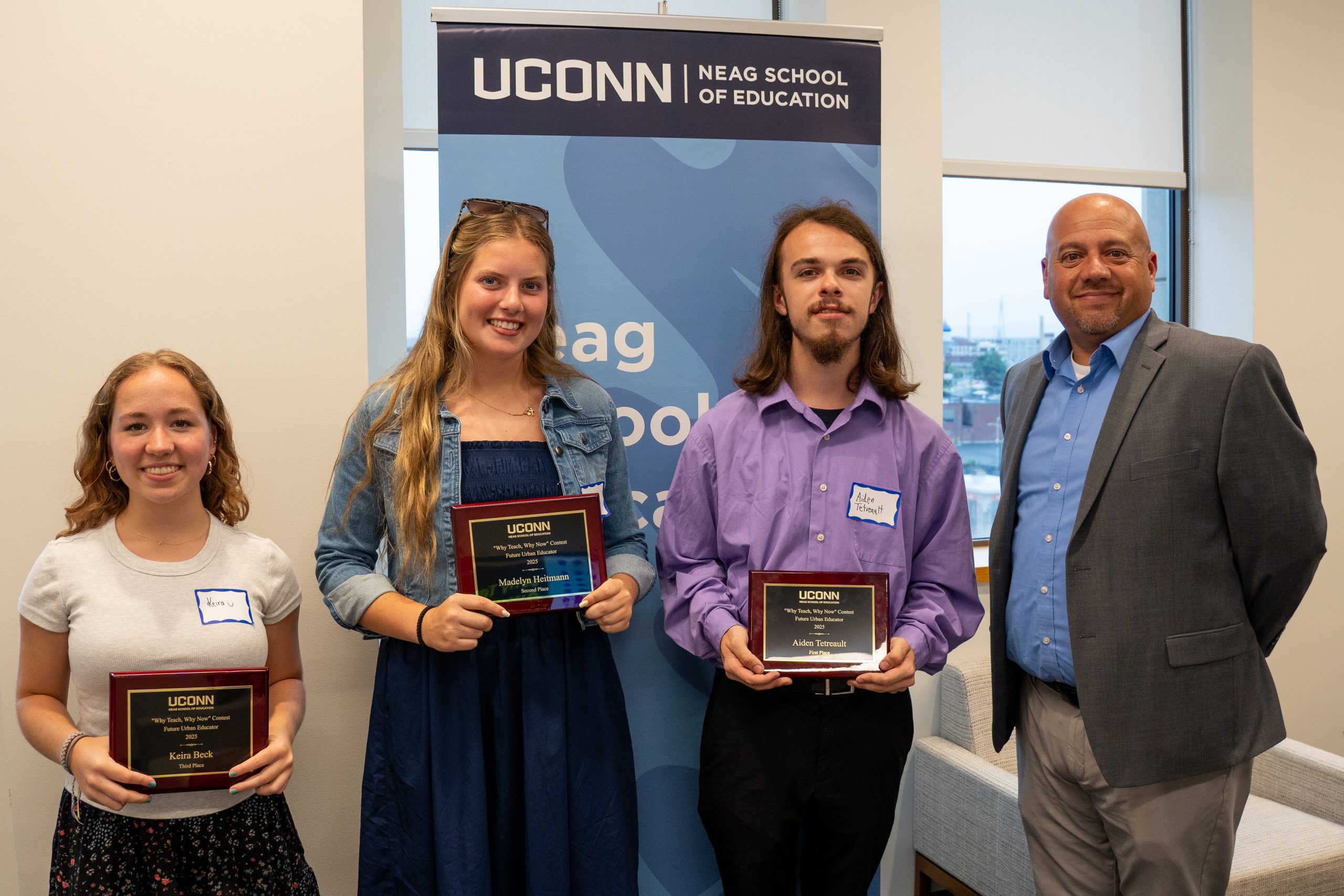While the world stops to wait out the COVID-19 pandemic, the orthopedic surgery residency program at UConn Health will keep going.
UConn’s Department of Orthopedics and Sports Medicine is partnering with Canadian firm Precision OS Technology to bring virtual reality capability, allowing residents to continue training remotely.
“This technology couldn’t have come at a better time,” says Dr. Lauren Geaney, residency program director. “We are struggling to balance the safety of all of our residents and patients with our obligation to continue to educate the surgeons we are graduating. Precision OS allows us to bridge that gap with amazing and accurate simulations.”

In a matter of days, residents will be able to use the technology to simulate surgical procedures rather than put their advanced training on hold for the foreseeable future.
Precision OS Technology, based in Vancouver, British Columbia, says its VR platform is intended to provide an operating room experience previously only available by physically being in an operating room.
“I will be starting my fellowship shortly, and now with no elective operative cases, I can feel my technical skills deteriorating without practice,” says Dr. Christian Merrill, who’s in the final year of UConn’s five-year program. “The Precision OS platform is exactly what we need. It is challenging, case-based, and allows me to operate through increasing levels of complexity in virtual reality. It allows us to practice our hand-eye coordination and 3D visual-spatial awareness from anywhere.”
The first VR goggles are arriving this week.
“We have tried many VR providers and we chose Precision OS given the quality of education and the fact that it is clearly made to improve surgeon skill,” Geaney says.



